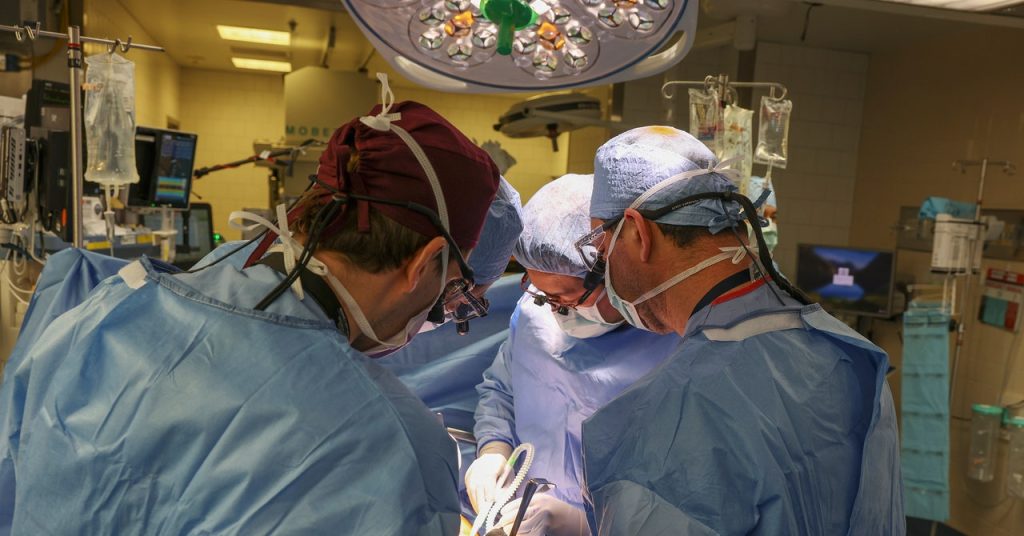Pioneering Pig Kidney Transplant Offers Hope for Organ Shortage
In an unprecedented medical breakthrough, a team of surgeons at Massachusetts General Hospital in Boston has successfully transplanted a genetically modified pig kidney into a 62-year-old patient. This groundbreaking procedure marks a significant step towards addressing the critical shortage of donor organs for transplantation.
A Momentous Surgery
The historic four-hour surgery took place on March 16, with the patient, Richard Slayman of Weymouth, Massachusetts, receiving the genetically altered pig kidney. The operating room erupted in applause when the transplanted organ began producing urine shortly after being placed in Slayman’s body, indicating its proper functioning. Tatsuo Kawai, one of the surgeons involved, described the kidney as “the most beautiful” he had ever seen.

Melissa Mattola-Kiatos, RN, Nursing Practice Specialist, removes the pig kidney from its box to prepare for transplantation. Courtesy of Massachusetts General Hospital.
Xenotransplantation: The Future of Organ Transplants
This surgery represents a major advancement in the field of xenotransplantation, which involves the use of animal organs in human patients. Scientists at eGenesis, a biotechnology company, used the gene-editing tool CRISPR to make 69 genetic modifications to the pig, including the removal of harmful pig genes and the addition of specific human genes. They also employed CRISPR to deactivate innate viruses present in the pig genome that could potentially infect a human recipient.
A Patient’s Journey
Slayman, who had previously received a human kidney transplant in 2018, began experiencing kidney failure due to complications from diabetes, the leading cause of kidney disease. Left with no choice but to undergo dialysis, Slayman faced numerous complications, including blood vessel clotting and failure, resulting in frequent hospitalizations and countless procedures.
Slowly but surely, I witnessed my patient becoming increasingly despondent and depressed over his dialysis situation.
Winfred Williams, a kidney specialist and member of Slayman’s medical team, suggested the pig kidney transplant as a potential solution. Slayman agreed, viewing it as an opportunity to not only help himself but also to provide hope for the thousands of individuals in need of a transplant to survive.
The Road Ahead
The success of this pig kidney transplant follows a series of promising xenotransplantation experiments. In 2022, researchers at New York University transplanted a genetically modified pig heart into a brain-dead person, demonstrating the organ’s normal functioning for 72 hours. Additionally, scientists at the University of Alabama at Birmingham have conducted similar experiments, transplanting gene-edited pig kidneys into brain-dead patients to assess organ function.
Jayme Locke, an abdominal transplant surgeon at the University of Alabama at Birmingham who has overseen some of these experiments, expressed her excitement about the Boston kidney transplant, stating that it showcases the growing momentum and potential of xenotransplantation in revolutionizing the field and offering hope to those in need of organ transplants.
As researchers continue to refine and advance xenotransplantation techniques, the prospect of using pig organs to save human lives becomes increasingly viable. With the success of this groundbreaking surgery in Boston, the medical community is one step closer to addressing the critical shortage of donor organs and providing a lifeline to countless patients awaiting transplants.

1 Comment
Wow, we’re living in the future now, aren’t we? Gene-edited pigs to the rescue!